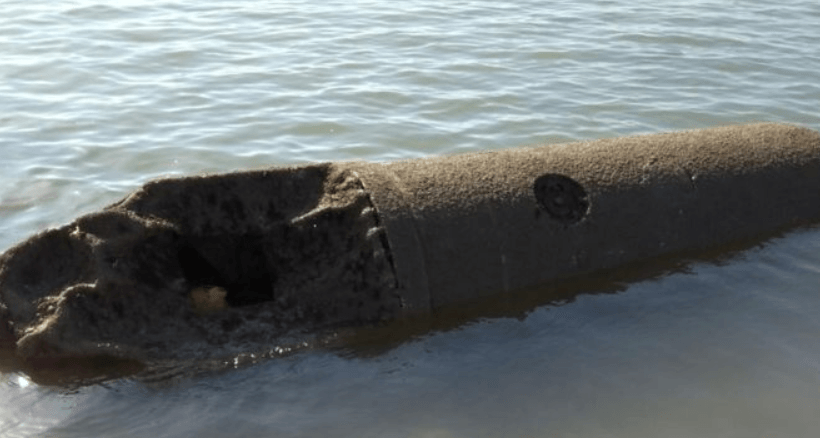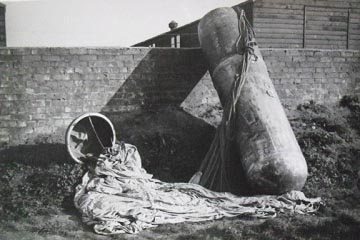Huge German parachute mine causes a six day headache for the Royal Navy
Royal Navy bomb disposal divers have destroyed a massive German bomb (a Luftmine B) after it was discovered in the wreck of a warship off the coast of Essex.
The weapon was found near Southend Pier by civilian divers who were exploring the 17th century shipwreck.
This was a very complex task in difficult weather conditions. It took the team six days (216 man hours and around 20 dives) to carefully remove the mine from the wreck. It was towed to the offshore military range at Shoeburyness, where it was blown up in a controlled detonation.

These devices were not designed to penetrate the ground and therefore unexploded examples found on land are extremely rare. However, such UXO could conceivably remain on an inland riverbed or lakebed in the UK.
In recent years, at least two examples of the RAF’s equivalent weapon have been encountered in Germany.
The German Luftmine B
During WW2, the Luftwaffe developed a range of parachute retarded influence mines for use against both marine and land targets. Originally used as sea mines, it was quickly discovered that they were effective on land as devastating “blast” bombs. When used on air raids inland, the British Civil Defence organisation called them ‘Landmines’.
There were two sizes of magnetic parachute mines. Luftmine A which weighed 500kg and Luftmine B which weighed almost 1000kg and measured 8′ 8″ in length. This find is an example of the larger type and contained as its main charge, 697kg of high explosive. These mines were constructed of aluminium with a domed parachute housing containing a large green or red parachute.
They were fitted with the Type 34 fuse and were detonated either by impact or by a disruption to the magnetic mechanism. British bomb disposal teams used a variety of bronze (anti-magnetic) tools to deal with unexploded Landmines.

It is not clear whether this mine would have been dropped as a sea mine in a shipping lane, or as a Landmine. Parachute mines had a tendency to drift great distances in windy conditions. Southend was frequently raided by the Luftwaffe and therefore this weapon could have been dropped as part of a raid on the town.
Unrivalled UXO Services
At Brimstone we tailor our service offerings to suit your needs. With three offices across the UK, we offer flexible support to projects nationwide.
Discover our UXO mitigation on our website, with services from assessment to bomb disposal.
You can also keep up to date with Brimstone by following us on Facebook, Instagram, Twitter, LinkedIn and YouTube.